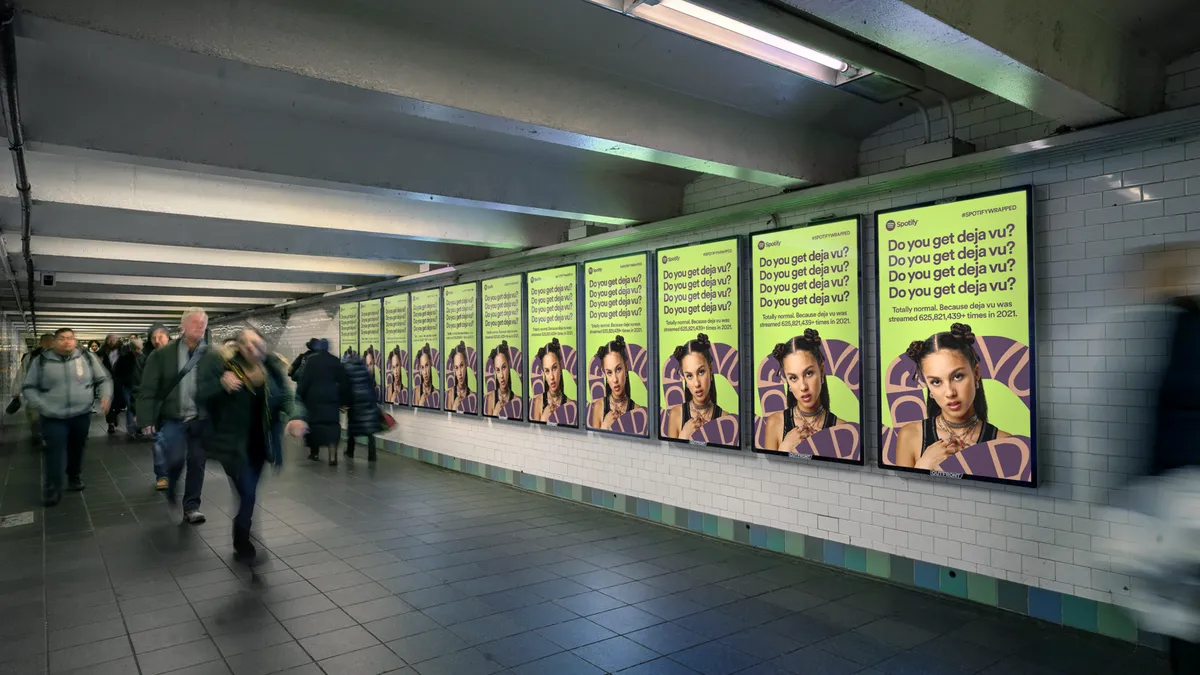Dive Brief:
-
Spotify this week announced plans to improve the brand safety of podcasts by working with Integral Ad Science (IAS), which makes software to evaluate ad fraud, viewability and brand risk. The companies plan to create what they describe as the industry’s first third-party brand safety and suitability reporting tool, per an announcement.
-
IPG Mediabrands’ UM Worldwide will be the first media agency to test the tool, which aims to bring more transparency to the podcast advertising market and ensure that audio ads are presented within a brand-safe context. Spotify's first-party data will be integrated with the software and verified by IAS based on Global Alliance for Responsible Media guidelines.
-
Spotify rolled out the brand-safety initiative two days after announcing it had formed a Safety Advisory Council to provide advice on issues including hate speech, disinformation, extremism and online abuse. The council won’t make decisions on enforcing Spotify’s decisions about content or creators, per its announcement.
Dive Insight:
Spotify and IAS’s new brand-safety tool for podcast advertisers seeks to reassure marketers that their ad messaging doesn’t stream around objectionable content. Spotify this year was at the center of controversy when recording artist Neil Young initiated a boycott against “The Joe Rogan Experience,” claiming that podcaster Joe Rogan was spreading misinformation about COVID-19 vaccines. Rogan is one of the most popular podcasters on Spotify, which two years ago signed a reported $200 million deal to distribute the show.
In some respects, Spotify’s move to improve brand safety for podcasts resembles steps taken by other platforms that rely heavily on user-generated content to ensure they’re not spreading objectionable content. Google’s YouTube and Meta Platform’s Facebook each have been targets of advertiser boycotts protesting their content moderation policies.
Spotify’s brand-safety initiative comes as U.S. podcast ad revenue is forecast to nearly double from $2.12 billion this year to $4.23 by 2024, according to the Interactive Advertising Bureau (IAB) and PwC. To ensure that it captures some of that growth, Spotify realizes its platform must be safe for brands that don’t want to be accused of sponsoring objectionable content.
This week’s news also potentially underscores the lasting impact that the controversy around Rogan is having on Spotify. As more entertainers joined Young’s protest against Spotify earlier this year, Rogan issued an apology and said he would take steps to “balance things out” with differing opinions on topics. Spotify CEO Daniel Ek stood by Rogan while also pointing out the company’s rules on objectionable content. Spotify eventually removed more than 70 episodes of Rogan’s show carrying questionable material, according to third-party trackers. Ek also apologized to employees in a memo and said the company was taking steps to “balance creator expression with user safety.”














